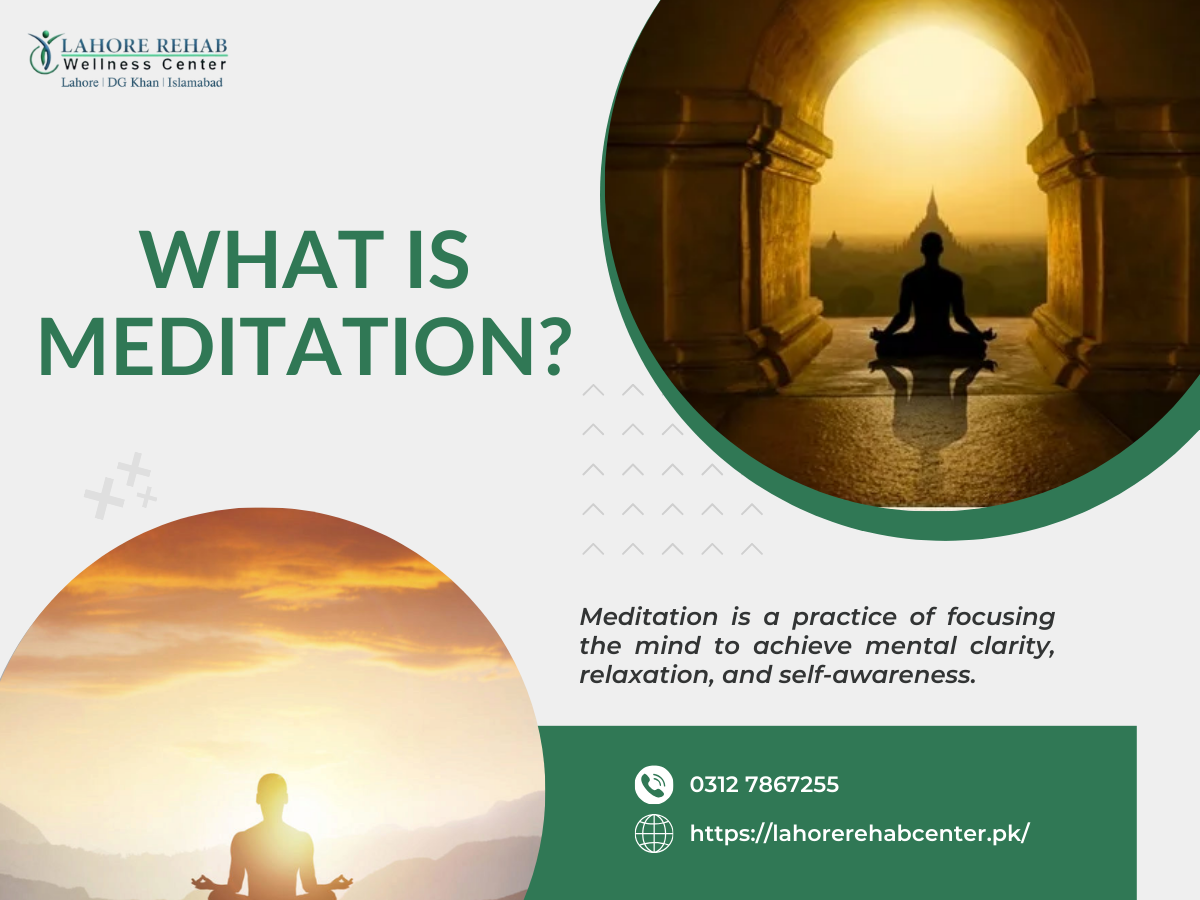
Meditation is an ancient practice that has been used for thousands of years to promote mental clarity, relaxation, and overall well-being. It involves focusing the mind on a particular object, thought, or activity to train attention and awareness. Meditation can be practiced in various forms, including mindfulness meditation, guided meditation, mantra meditation, and transcendental meditation, among others. Regardless of the type, the primary goal of meditation is to achieve a state of deep peace and relaxation while maintaining awareness.
Meditation dates back thousands of years and has roots in various religious and spiritual
traditions. Ancient civilizations, including those in India, China, and Egypt, practiced meditation
as a way to connect with the divine, gain wisdom, and cultivate inner peace. In Hinduism and
Buddhism, meditation has been a core spiritual practice, with techniques such as Vipassana,
Zen, and Yoga Nidra being widely used to enhance self-awareness and enlightenment. Over
time, meditation has transcended religious boundaries and is now widely practiced worldwide
for its numerous health benefits.
Meditation has profound effects on both the mind and body. It influences the nervous system,
reduces stress hormones, and promotes overall physical well-being. Below are some of the
significant ways meditation affects your body:
1. Reduces Stress and Anxiety
One of the most well-documented benefits of meditation is its ability to reduce stress. When a
person meditates, their body enters a state of relaxation, leading to decreased levels of cortisol,
the primary stress hormone. This reduction in stress helps alleviate symptoms of anxiety,
depression, and other mental health disorders.
2. Improves Heart Health
Meditation positively impacts cardiovascular health by lowering blood pressure, reducing heart
rate, and improving circulation. Studies have shown that people who practice meditation
regularly have a lower risk of heart disease and stroke. By calming the nervous system,
meditation helps regulate blood pressure and improves overall heart health.
3. Boosts the Immune System
Meditation has been found to strengthen the immune system by reducing inflammation and
promoting a healthy response to infections. A relaxed body and mind contribute to a better
immune response, making the body more resistant to illnesses such as colds, flu, and other
infections.
4. Enhances Brain Function and Mental Clarity
Regular meditation leads to structural changes in the brain, enhancing cognitive function and
memory. Studies using brain imaging techniques have shown that meditation increases the
thickness of the prefrontal cortex, which is responsible for decision-making, problem-solving,
and emotional regulation. Additionally, meditation promotes neuroplasticity, which helps the
brain adapt and function efficiently.
5. Reduces Chronic Pain
Meditation can help alleviate chronic pain by altering the perception of pain and increasing the
body’s pain tolerance. It has been found beneficial for individuals suffering from conditions
such as arthritis, fibromyalgia, and migraines. By promoting relaxation and reducing
inflammation, meditation serves as a natural pain management technique.
6. Improves Sleep Quality
People who struggle with insomnia or poor sleep quality can benefit greatly from meditation.
By reducing stress and promoting relaxation, meditation helps individuals fall asleep faster and
enjoy deeper, more restorative sleep. Mindfulness meditation, in particular, has been found
effective in reducing racing thoughts that interfere with sleep.
7. Balances Hormones
Meditation helps regulate hormones in the body, including serotonin, dopamine, and oxytocin,
which contribute to happiness and emotional well-being. By lowering cortisol levels and
increasing the production of feel-good hormones, meditation creates a balanced internal
environment, promoting emotional stability and resilience.
8. Enhances Digestive Health
Stress and anxiety can negatively impact digestion, leading to issues such as irritable bowel
syndrome (IBS) and indigestion. Meditation helps activate the parasympathetic nervous system,
which promotes relaxation and improves digestive function. A calm mind leads to a healthier
gut, reducing symptoms of digestive disorders.
There are various forms of meditation, each offering unique benefits to the body. Here are some popular types of meditation:
If you’re new to meditation, starting with just a few minutes a day can be beneficial. Here are
some simple steps to begin:
Conclusion
Meditation is a powerful practice that positively impacts both mental and physical health. From
reducing stress and improving heart health to enhancing brain function and promoting better
sleep, the benefits of meditation are immense. By incorporating meditation into daily life,
individuals can experience greater relaxation, emotional stability, and overall well-being.
Whether practiced for spiritual growth or personal well-being, meditation is a valuable tool for
a healthier and happier life.

0312-7867255
0303-7867255
042-32217633
Lahore Rehab Center